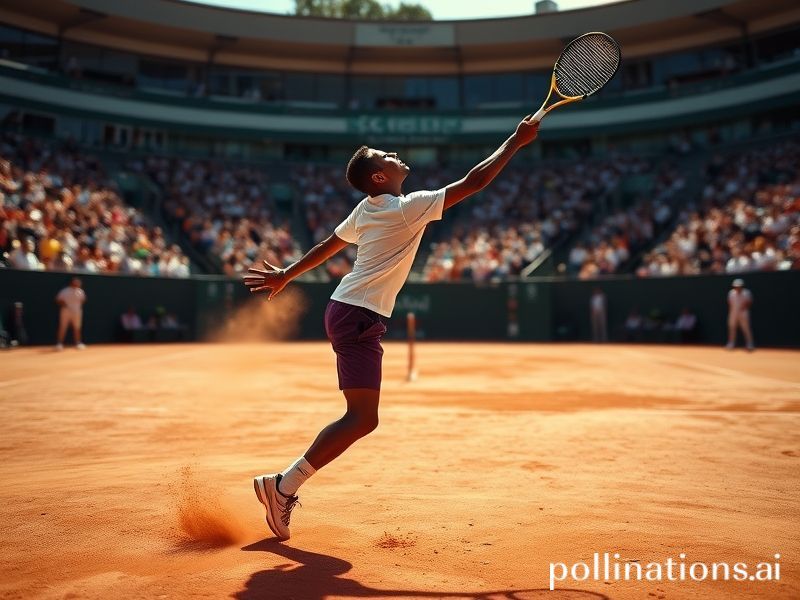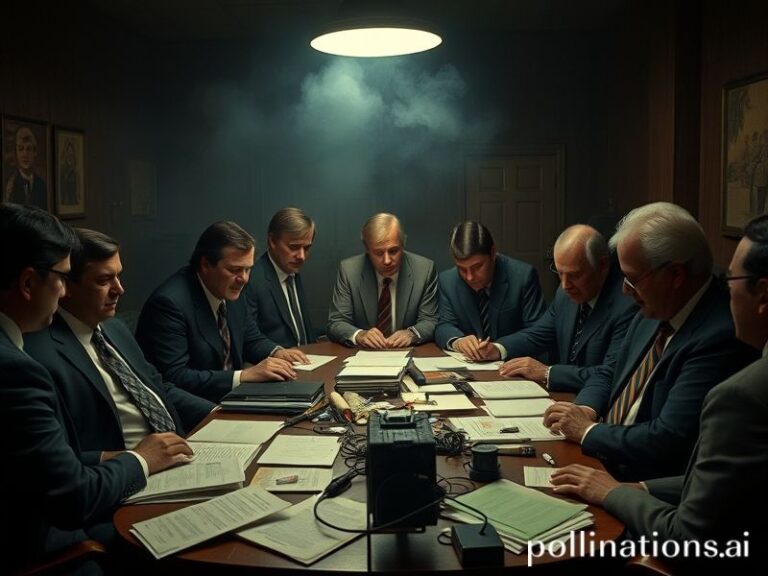French Missile Crisis: How Giovanni Mpetshi Perricard’s 243 km/h Serve Is Reshaping Global Power
The 6’8″ Revelation: How a French Teenager’s Serve Became a Geopolitical Weapon
By the time Giovanni Mpetshi Perricard had finished pummelling the Adelaide International’s speed gun at 243 km/h last January, three distinct constituencies were already recalibrating their spreadsheets. Tennis Australia’s marketing department began quietly deleting old promos of “friendly” Nick Kyrgios; the International Tennis Integrity Agency ran the obligatory algorithm to check whether such velocity was humanly possible without external propulsion (verdict: barely); and the French Foreign Ministry, ever alert to soft-power opportunities, started drafting talking points to slip the kid into next month’s Indo-Pacific charm offensive. After all, nothing says “la République still matters” like a lanky 19-year-old whose serve could perforate a shipping container.
Mpetshi Perricard’s rise is, on paper, a quaint tale of generational talent: junior champion at Roland-Garros, fast-tracked through the Futures circuit, now edging top-50 scalps while still collecting university credits in Paris. But in our current era—where data is the new oil and TikTok the new opium—the implications stretch well beyond the tramlines. Broadcasters from Lagos to Lima have noticed that his service games are perfect for vertical-video highlights: 15-second clips, one thunderbolt, instant dopamine, no pesky rallies that confuse casual viewers. The ATP’s new broadcast deal in sub-Saharan Africa, long a graveyard for live tennis ratings, suddenly carries an annex promising “minimum three Mpetshi aces per telecast.” In Nairobi sports bars, punters now wager on which quadrant of the speed gun will liquefy first. Civilisation marches on.
Meanwhile, the European Union’s beleaguered soft-power apparatus has latched onto him like a life raft. Brussels recently earmarked a slice of the Creative Europe budget to produce a multilingual documentary titled “Serve & Protect: A Continent’s Hope in White Shorts.” The trailer features slow-motion footage of the ball leaving his racket intercut with shots of wind turbines and Ukrainian wheat fields—subtlety never being the EU’s strong suit. Officials privately admit the goal is to remind the planet that Europe can still export something other than inflation and guilt.
Of course, any sudden concentration of ballistic talent invites darker speculation. The Chinese Tennis Association has already inquired—through the usual circuit of agents, academies, and hongbao envelopes—whether young Giovanni might fancy a winter training block in Sanya, “strictly performance-focused.” The French embassy politely redirected them to the FFT, which redirected them to voicemail. Still, one can imagine Xi Jinping’s staffers calculating the soft-power ROI of a Grand Slam final featuring a player developed on Hainan clay. They wouldn’t even need to fake the birth certificate; just the humidity readings.
Back in metropolitan France, the kid’s multicultural surname—Congolese-Italian father, French mother—has given the nation’s commentariat yet another chew toy for the ongoing identity pageant. Marine Le Pen’s comms team tested a dog-whistle tweet about “true French champions” but deleted it after aides pointed out that the last Frenchman to win a major was… also of mixed heritage. Instead, the far right pivoted to complaining about carbon emissions from his trans-Atlantic flights, proving that hypocrisy, unlike Mpetshi’s serve, knows no speed limit.
There is, naturally, the small matter of sustainability. Racket manufacturers have rushed prototypes with graphene-reinforced throats, promising 4 % more pop—roughly the difference between a passing jet and a low-yield missile. Environmental groups calculate that each extra km/h requires 0.7 g of additional graphite, mined in Mozambique under conditions that would make a Dickensian foreman blush. But hey, the kid’s Instagram following just cracked 400 k, so the market has spoken.
Whether Mpetshi Perricard actually wins a major is almost beside the point; the mere possibility is already reconfiguring alliances, budgets, and barstool arguments from Montmartre to Montevideo. In a world where every serve is livestreamed, every grunt monetised, and every nationality negotiable, the French have stumbled upon a rare commodity: a weapon nobody can sanction and everybody wants to broadcast. As one jaded ATP veteran muttered over flat whites in Melbourne, “We used to worry about nuclear proliferation. Now it’s 240-gram Wilsons.” Humanity, it seems, prefers its apocalypse served at 243 km/h down the T.







